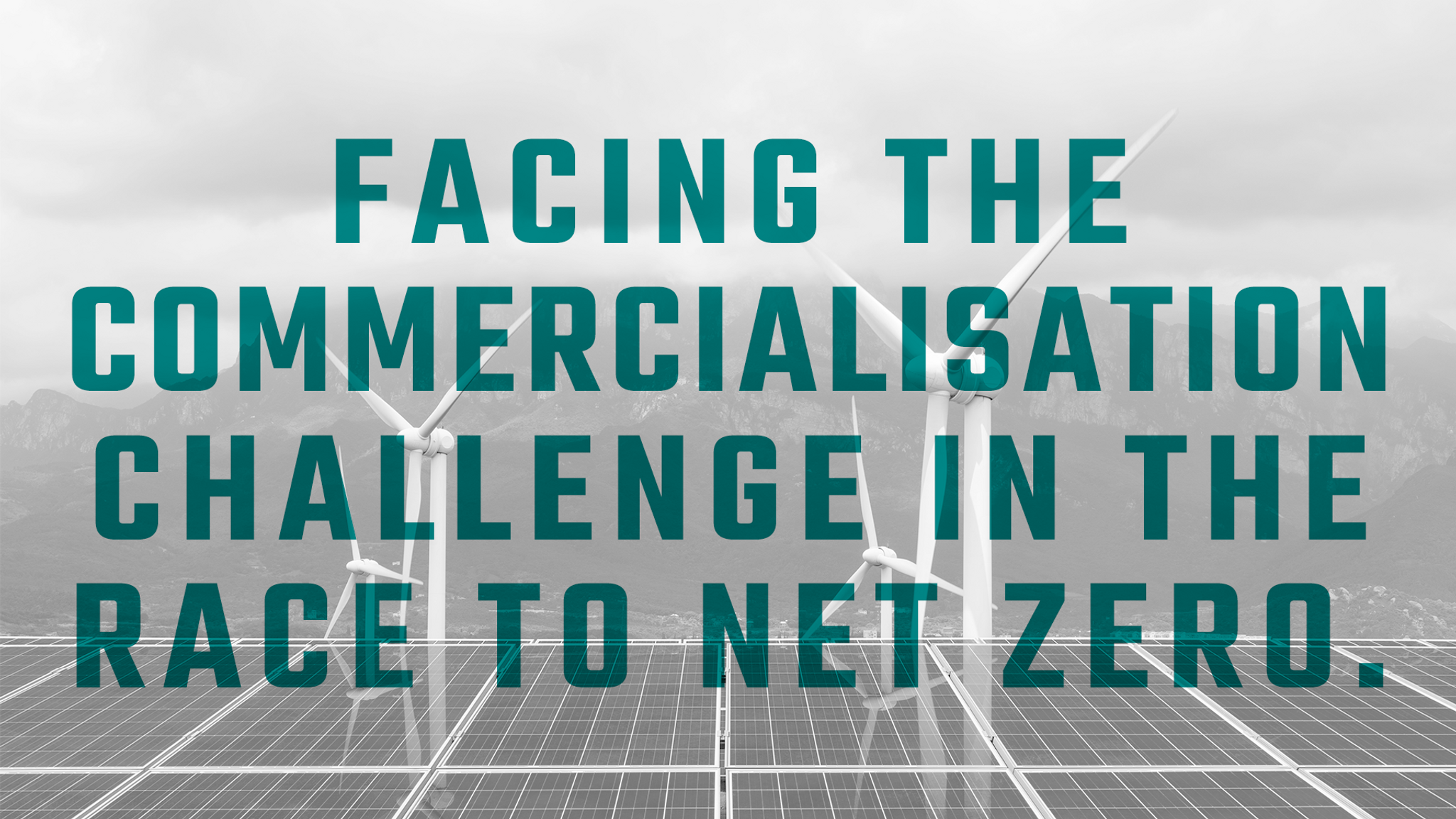Facing the commercialisation challenge in the race to net zero.
Stuart Allinson
Published on

Getting to net zero is daunting. So much so it provokes a ‘fight flight freeze'' response depending on your psychological predisposition.
As a firm believer in human ingenuity to solve the trickiest of problems - I spend a great deal of my time searching for breakthrough technologies and meeting with amazing entrepreneurs with the passion, drive and intelligence (both kinds) to create solutions with the potential to significantly impact climate issues.
Speaking to founders in this context has convinced me of 2 things:
- We can decarbonise human society
- We might get there in time to turn things around
And here’s the catch: The biggest single challenge we need to overcome is not the rate of innovation, but the rate of commercialisation.
By way of illustration, here are three examples of tech-start-ups with the ability to really accelerate the energy transition:
- HAMR Energy - creating the molecules that service our society from sustainable sources. With a proposal to create a commercial bio-hydrogen hub in SouthWest Victoria
- Sungreen H2 - out of Singapore and operating in Victoria. Creating the most efficient hydrogen electrolysers in the world whilst minimising use of rare/expensive materials
- MGA Thermal - out of Newcastle NSW. High temperature energy storage from sustainable materials.
The first 2 graduated from our corporate programs, the last one didn’t, but their technology is stand-out nevertheless.
They’ve each worked out a way to decarbonize and circularise our economies for a net zero future, it’s now up to us collectively to adopt these technologies as they grow and assist them to commercialise.
Startupbootcamp, works with startups like these to help them connect with corporates and investors who are taking up the fight to get to net zero. It’s already a huge achievement that these large organisations haven’t frozen or fled the battle, but having picked up the gauntlet, they’re facing many challenges ahead.
There is no ‘one size fits all’ approach to transitioning to net zero - each organisation will have a different set of problems they need to solve and have different needs depending on the company culture and the stage they’re at in their transition.
But from our experience working with many companies as they take on the fight, there is a common theme - learning to adapt to think more like a startup.
Large organisations are typically more cautious and usually slower to act, whereas speed is of utmost importance. This can create tensions when they’re working with lean startups keen to commercialise as quickly as possible.
Much of our work is concerned with bringing together start-up entrepreneurs and large organisations, helping them overcome the fear of failure to embrace experimentation, learn fast and adapt. Overall helping them through the process as they work with each startup to solve a key problem. We do this through a structured process - building a bridge of trust between impatient start-ups and risk-hardened corporate executives.
As in life, there are no guarantees, but by working collaboratively, we can shift the dial substantially in favour of rapid commercialisation, sustainable economic growth and a more appealing future.
